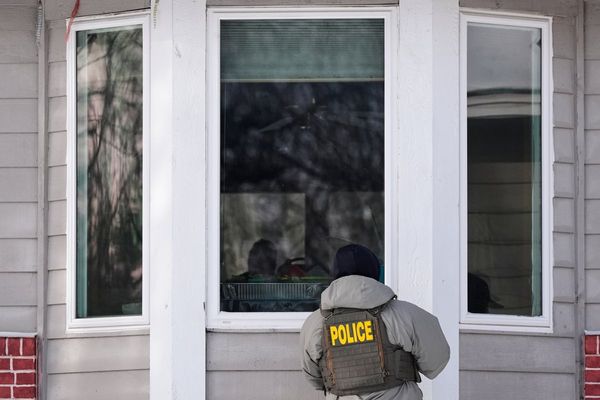
It’s a scenario that plays out in quiet suburban neighborhoods every day. You’re working in your garden or getting out of your car when a stranger approaches you. They are friendly, polite, and they have a plausible story: they’re looking for a friend’s house, they’ve taken a wrong turn, or their phone’s GPS has died. Your natural instinct is to be a good neighbor and help them. But this seemingly innocent interaction could be something much more sinister. Law enforcement officials warn that this is a common tactic used by burglars and other criminals to gather information. The reason why strangers pretend to be lost is often a calculated move to assess your home and your vulnerability.
Here’s a breakdown of what they are really looking for when they approach you.
They Are Testing Your Willingness to Engage
A criminal’s first goal is to see if you are a “soft” or a “hard” target. A hard target is someone who is aware of their surroundings, cautious, and who keeps a polite but firm distance. A soft target is someone who is overly trusting and eager to help. When a stranger approaches you with a story, they are gauging your reaction.
Do you immediately stop what you’re doing and give them your full, undivided attention? Do you invite them closer to look at a map on your phone? Your warm and helpful response, while well-intentioned, signals to them that you are a trusting person. This makes you a more attractive target for a future crime.
They Are Casing Your Home for Security Flaws
While you are focused on giving them directions, their eyes are busy scanning your property. This is the primary reason why strangers pretend to be lost. They are conducting a quick, covert security audit of your home. Looking for signs of a home security system, such as cameras or window sensors. Checking to see if your doors and windows are open. Also taking note of the quality of your locks and whether you have a dog that might pose a problem.
The “lost” act is the perfect cover for this surveillance. It allows them to stand in one place and look around your property for several minutes without arousing suspicion.
They Are Trying to See Inside Your House
The conversation is a tool to get you to open your front door. If you are standing on your porch, they can get a quick look inside your home as you speak. They are looking for valuable items that are in plain sight, such as a large flat-screen TV, a laptop on the kitchen table, or expensive artwork on the walls.
In some cases, they might escalate their request. They could ask to use your phone, claiming theirs is dead, or ask for a glass of water. These are all pretexts to get you to invite them inside your home. This allows them to get a much better look at the layout and the location of your valuables.
They Are Determining Your Schedule and Habits
The interaction gives them valuable information about your daily life. The time of day they approach you tells them when you are likely to be home. The car in your driveway tells them what you drive. The toys in the yard tell them you have children. They might ask seemingly innocent questions that are designed to gather more data. For example, “Are you heading off to work?” is a way of asking if the house will be empty for the next eight hours. This information helps them plan the best time to return for a burglary.
They Are Looking for an Opportunity for a Crime of the Moment
While some criminals are planning a future burglary, others are looking for an immediate opportunity. While you are distracted by their questions, an accomplice could be trying to slip in through an unlocked back door or an open garage. The person you are talking to is the diversion. This is a particularly common tactic in crimes targeting the elderly. One person will keep the homeowner occupied at the front door with a confusing story, while their partner burglarizes the back of the house.
How to Protect Yourself While Still Being a Good Person
You don’t have to be rude or paranoid to be safe. It is possible to be helpful without making yourself vulnerable.
First, always maintain a safe physical distance. Do not let a stranger get within arm’s reach of you. Second, keep the conversation brief and do not offer any personal information. Most importantly, never, ever let a stranger into your home for any reason. You can offer to make a phone call for them from behind your locked door. You can also give them directions from your porch or the edge of your driveway. Your personal safety is more important than a stranger’s convenience.
Trust Your Intuition
The key takeaway is to be aware that this tactic exists. Understanding why strangers pretend to be lost allows you to see these interactions through a more critical lens. If a situation feels “off” or a person’s story doesn’t quite add up, trust your gut. A polite refusal to engage further is not an overreaction; it is a smart and necessary act of self-protection. Your home is your sanctuary, and you have every right to protect it.
Have you ever had an encounter with a stranger that made you feel unsafe? Share what happened in the comments.
What to Read Next…
- 8 “Innocent” Behaviors That Tell Strangers You’re Home Alone
- 10 Questions Strangers Ask That Are Actually Red Flags
- 6 Garage Door Mistakes That Could Literally Put Your Life at Risk
- 10 Safety Gadgets Women Refuse to Live Without—But Men Never Take Seriously
- 9 “Safety” Gadgets That Are Easier to Hack Than You Think
The post Why Random Strangers Pretend to Be Lost in Suburbs… And It’s Not What You Think appeared first on Budget and the Bees.







